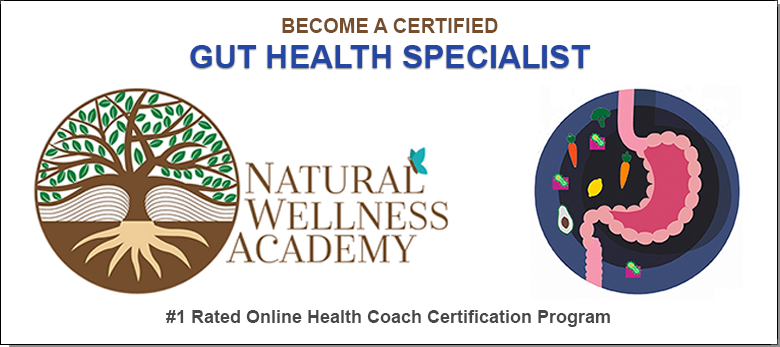
Gut health plays a crucial role in our overall well-being, influencing everything from digestion to immune function. What might surprise many is the profound impact gut health has on our mental well-being. Recent research has shown a strong connection between the gut and the brain, revealing how a balanced gut can lead to a happier mindset.
Contents
- Introduction to Gut Health and Mental Health
- Understanding the Gut-Brain Connection
- Diet and Nutrition for Gut Health
- Lifestyle Changes to Improve Gut Health
- Expert Coaching Techniques for Enhancing Gut Health
- References
Introduction to Gut Health and Mental Health
Gut health plays a crucial role in our overall well-being, influencing everything from digestion to immune function. What might surprise many is the profound impact gut health has on our mental well-being. Recent research has shown a strong connection between the gut and the brain, revealing how a balanced gut can lead to a happier mindset. In this post, we’ll explore the techniques expert coaches use to harness this connection, offering practical advice on diet, lifestyle changes, and personalized strategies. By understanding and optimizing our gut health, we can take significant steps toward improving our mental and emotional health.
Importance Of Gut Health For Overall Well-Being
Our gut is often referred to as our “second brain” due to its extensive network of neurons and its ability to influence various bodily functions. Maintaining good gut health is essential not just for digestion, but also for nutrient absorption, immune system function, and even skin health. When our gut is healthy, we feel better physically, which sets the foundation for better mental health.
Connection Between Gut Health And Mental Health
The link between gut health and mental health is becoming increasingly clear. The gut-brain axis, a complex communication network between the gut and the brain, plays a significant role in regulating our mood and cognitive functions. An imbalance in gut health can lead to issues such as anxiety, depression, and stress, highlighting the importance of maintaining a healthy gut for a positive mental state.
Overview Of Techniques From Expert Coaches
Expert coaches employ a variety of techniques to improve gut health and, by extension, mental health. These methods include personalized dietary plans, stress management strategies, and lifestyle adjustments. Coaches focus on creating sustainable habits that support long-term health and well-being. In this post, we will cover some of the most effective techniques recommended by these experts, providing you with actionable steps to create a happier mindset through improved gut health.
Understanding the Gut-Brain Connection
The relationship between our gut and brain is complex and fascinating. Known as the gut-brain axis, this bidirectional communication system influences our mental and emotional well-being. By understanding how this connection works, we can better appreciate the importance of maintaining gut health for a happier mindset.
The Science Behind The Gut-Brain Axis
The gut-brain axis involves multiple pathways that allow the gut and brain to communicate with each other. This intricate system plays a vital role in our overall health.
Role Of The Vagus Nerve
The vagus nerve is a major component of the gut-brain axis. It acts as a communication highway, transmitting signals between the gut and the brain. This nerve helps regulate digestion, mood, and stress levels, demonstrating the direct influence the gut has on our mental state.
Influence Of Gut Microbiota On Mental Health
Our gut is home to trillions of microorganisms, collectively known as the gut microbiota. These microbes produce various substances that can affect brain function. For example, they produce neurotransmitters like serotonin, which plays a crucial role in regulating mood and emotion. An imbalance in gut microbiota can lead to mental health issues such as anxiety and depression [1].
How Gut Health Impacts Mood And Emotions
A healthy gut contributes significantly to a stable and positive mental state. By maintaining a balanced gut environment, we can support better mood regulation and emotional well-being.
Production Of Neurotransmitters
Neurotransmitters are chemical messengers that play a key role in transmitting signals within the brain. Many of these, including serotonin and dopamine, are produced in the gut. A healthy gut ensures the production of these vital neurotransmitters, contributing to a balanced and positive mood.
Effects On Stress And Anxiety Levels
The gut-brain axis also influences our response to stress and anxiety. A well-functioning gut can help regulate the body’s stress response, reducing the impact of anxiety and promoting a calmer state of mind. Techniques such as maintaining a healthy diet, managing stress, and supporting gut health can lead to significant improvements in how we handle stress and anxiety.

Diet and Nutrition for Gut Health
Diet plays a pivotal role in maintaining gut health, which in turn supports mental well-being. Choosing the right foods and avoiding harmful ones can significantly impact the gut-brain axis, promoting a balanced and positive mindset.
Importance Of A Balanced Diet
A balanced diet is essential for optimal gut health. It provides the necessary nutrients that support the growth and function of beneficial gut bacteria, which are crucial for maintaining a healthy gut environment.
Essential Nutrients For Gut Health
Certain nutrients are particularly important for gut health. Fiber, for instance, supports the growth of beneficial bacteria. Vitamins and minerals like vitamin D, zinc, and magnesium also play critical roles in maintaining a healthy gut lining and supporting immune function.
Foods To Avoid For Better Gut Health
Just as some foods promote gut health, others can be detrimental. Processed foods, high sugar content, and artificial additives can disrupt the balance of gut microbiota and lead to inflammation. Limiting these foods helps maintain a healthy gut environment [2].
Expert-Recommended Foods For A Healthy Gut
Incorporating specific foods into your diet can enhance gut health. Expert coaches often recommend a variety of foods that support a balanced gut microbiome and overall well-being.
Probiotic-Rich Foods
Probiotics are live beneficial bacteria that can improve gut health. Foods like yogurt, kefir, sauerkraut, kimchi, and other fermented products are rich in probiotics. Including these foods in your diet can help maintain a healthy balance of gut bacteria.
Prebiotic-Rich Foods
Prebiotics are non-digestible fibers that feed beneficial gut bacteria. Foods such as garlic, onions, leeks, asparagus, bananas, and whole grains are excellent sources of prebiotics. These foods support the growth and activity of probiotics in the gut.
Anti-Inflammatory Foods
Chronic inflammation can harm gut health. Foods with anti-inflammatory properties, such as fatty fish, nuts, seeds, berries, and leafy greens, can help reduce inflammation and support a healthy gut environment.
Sample Meal Plans And Recipes
Creating meal plans that incorporate gut-friendly foods can make it easier to maintain a healthy diet. Here are some ideas and recipes to help you get started.
Breakfast Ideas
- Greek yogurt with honey, chia seeds, and fresh berries
- Overnight oats with bananas, nuts, and a spoonful of flaxseeds
Lunch Ideas
- Quinoa salad with mixed greens, avocado, chickpeas, and a lemon-tahini dressing
- Whole grain wrap with grilled chicken, hummus, and a variety of fresh vegetables
Dinner Ideas
- Baked salmon with a side of roasted Brussels sprouts and sweet potatoes
- Stir-fried tofu with broccoli, bell peppers, and brown rice
Lifestyle Changes to Improve Gut Health
Beyond diet, lifestyle choices play a significant role in maintaining gut health. Implementing effective stress management techniques, prioritizing quality sleep, and making other positive lifestyle changes can greatly enhance gut health and overall well-being.
Stress Management Techniques
Managing stress is crucial for gut health. Chronic stress can negatively impact the gut-brain axis, leading to imbalances in gut microbiota and digestive issues.
Meditation And Mindfulness Practices
Meditation and mindfulness are effective techniques for reducing stress. Practices such as deep breathing, progressive muscle relaxation, and mindfulness meditation can calm the mind and positively influence gut health by reducing stress hormones that can disrupt gut function [3].
Physical Exercise And Its Benefits
Regular physical activity is beneficial for both the body and the gut. Exercise helps regulate bowel movements, reduces inflammation, and supports the growth of beneficial gut bacteria. Activities like walking, yoga, and moderate-intensity aerobic exercises are particularly good for maintaining gut health.
Importance Of Sleep And Gut Health
Quality sleep is vital for gut health. Poor sleep can disrupt the gut microbiome, leading to digestive issues and affecting overall health.
Sleep Hygiene Tips
Good sleep hygiene practices can improve sleep quality. These include maintaining a regular sleep schedule, creating a restful sleep environment, and avoiding stimulants like caffeine and electronics before bedtime. Prioritizing these habits can help ensure you get the restorative sleep needed for gut health.
Impact Of Sleep On The Gut-Brain Axis
Sleep directly affects the gut-brain axis. During sleep, the body undergoes repair processes that benefit the gut lining and microbiome. A regular, healthy sleep pattern supports these processes, contributing to better mental and gut health.
Expert Coaching Techniques for Enhancing Gut Health
Expert coaches use a variety of techniques to help individuals improve their gut health. These methods are tailored to each person’s unique needs, ensuring that they achieve optimal results. By working with a coach, you can receive personalized guidance and support on your journey to better gut health.
Personalized Gut Health Assessments
One of the key strategies used by expert coaches is personalized assessments. These evaluations provide a comprehensive understanding of an individual’s gut health status, helping to identify specific areas that need improvement [4].
Importance Of Individualized Plans
Every individual has a unique gut microbiome, which means that a one-size-fits-all approach is often ineffective. Personalized plans take into account factors such as diet, lifestyle, medical history, and gut health goals, ensuring that each person receives tailored recommendations that address their specific needs.
Common Assessment Tools Used By Coaches
Coaches utilize various tools to assess gut health. These may include questionnaires, dietary logs, and lab tests such as stool analysis. These tools help coaches gather detailed information about an individual’s gut microbiota, digestive function, and potential imbalances, allowing them to create a targeted action plan.
Goal Setting And Monitoring Progress
Setting realistic goals and tracking progress is essential for achieving long-term gut health improvements. Coaches guide individuals through this process, helping them stay motivated and on track.
Setting Realistic And Achievable Goals
Coaches work with individuals to set specific, measurable, achievable, relevant, and time-bound (SMART) goals. These goals provide clear direction and milestones, making it easier to stay focused and motivated. By breaking down larger objectives into smaller, manageable steps, individuals can experience steady progress and avoid feeling overwhelmed.
Tracking And Adjusting Plans As Needed
Regular monitoring is crucial for assessing progress and making necessary adjustments. Coaches frequently check in with individuals to review their progress, celebrate successes, and address any challenges. This ongoing support ensures that the action plan remains effective and adaptable to changing needs.
Integrating Gut Health Into Daily Routine
Creating sustainable habits is essential for maintaining long-term gut health. Coaches provide practical strategies to help individuals incorporate gut-friendly practices into their daily lives.
Creating Sustainable Habits
Sustainable habits are the foundation of lasting gut health improvements. Coaches help individuals develop routines that support gut health, such as regular meal planning, consistent exercise, and mindful eating. By focusing on gradual changes and consistency, these habits become a natural part of daily life.
Building A Support System
Having a strong support system can significantly enhance success in improving gut health. Coaches encourage individuals to seek support from family, friends, and online communities. Sharing experiences, challenges, and successes with others can provide motivation, accountability, and a sense of community.
References
[1] The Role of Gut Microbiota in Anxiety, Depression, and Other Mental Disorders
[2] Turns out your ‘gut feelings’ are real. How gut and mental health are connected
[3] How Might Our Gut Health Affect Our Mental Health?
[4] The Gut-Brain Connection: Understanding How Gut Health Impacts Mental Health

